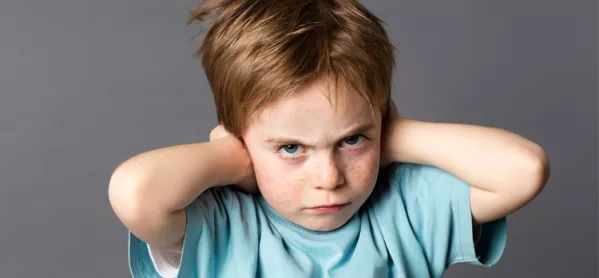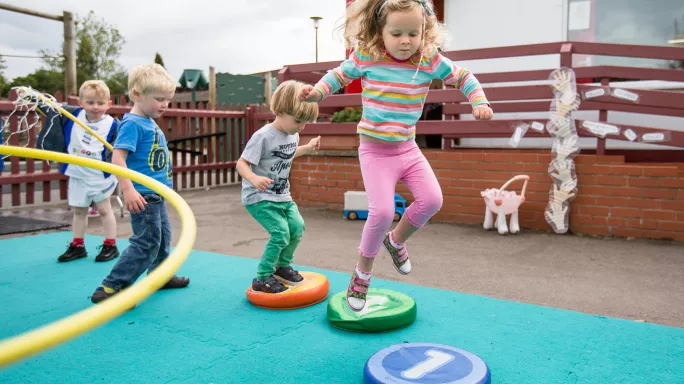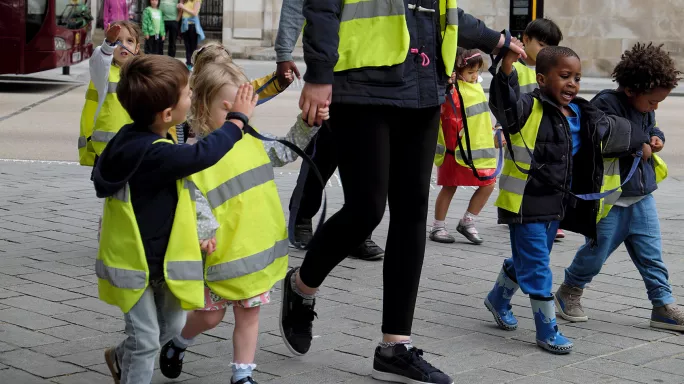
- Home
- Why we should not force children in EYFS to share
Why we should not force children in EYFS to share

I don’t think young children - especially those aged five and under - should be forced, much less expected, to share anything. At all.
I have the sense this puts me in a distinct minority in the field of early years care and education and I welcome the challenge to convince people of this idea. I don’t expect anyone to agree with me, but I do want people to at least think about and reflect on the counter argument I propose below.
Quick read: Stop being a slave to the EYFS schedule
Quick listen: What does school readiness actually mean?
Want more articles like this? Join our Tes Teaching and Learning Facebook group
Before we begin, I have to note that I have lost count the amount of times I have done everything I am detailing below. I am not writing this to tell anyone what “good” or “bad” practice is and they must “change course” immediately. I am writing it to share some of the results of my own process of reflection over the years.
So, let’s get to it.
EYFS: toy conflict
Whether they are a toddler or in Reception, young children’s conflicts over toys and resources might be the most common and least examined event we face each day.
It is often emotionally taxing to deal with all the incidents, and a common lack of group adult reflection or clarity on these issues does not help either. Does your team have a shared definition or understanding of what it actually means for children to share?
Most don’t.

The conflicts over toys can grind you down and it is understandable, therefore, that we don’t naturally relish dealing with the fallout as children try their best to sort out who gets to use what and when. We all have a lot on our plates each day and the most patient adult in the world can’t be expected to always have the presence of mind necessary to “perfectly” help children work out conflicts over trucks in a sandpit.
In our rush to “solve” their conflict as quick as possible, though, we miss out on extremely valuable teaching opportunities. More than that, by forcing sharing, I now feel we actually miseducate them in terms of their personal, social and emotional development.
Focus on the learning
Too often, I often think our settings inadvertently teach children that “sharing” means whinging to an adult persistently enough to get them to take a desired toy from another child and give it to them.
“You’ve had it long enough, please share the bucket with Yahya.”
“OK. in five minutes you need to give the bike to Rebecca.”
Does anything in our adult lives work this way? Why do we expect children with far less life experience to understand or accept these sort of impositions?
Through praise and rewards, it’s also entirely possible to train young children to give the outward appearances of sharing (“I love the way Bryan gave his pencil to Joseph. Well done Bryan”), but this doesn’t necessarily always have anything to do with the inner cultivation of traits like empathy, cooperation or generosity.
Supporting these traits, along with self-regulation and theory of mind, are some of young children’s most important developmental tasks.
Forced actions
What does the child who is forced to give their bucket to Yahya learn about what it means to share? How does a child having to give their bike to Rebecca, because a timer said so, help them develop their their empathy or generosity?
I’d argue that all that children learn from these sorts of interactions is that their play and interests aren’t actually valued by their teacher. Because young children are observers of adults of the highest calibre, our paper thin “solutions” to these common events might implicitly teach them that even the adults in their lives - who truly are omnipotent in their eyes - aren’t comfortable with conflicts or difficult emotions and take the quickest possible route to get out of them.
What about Yahya or Rebecca? When we step in to give them toys other children were using, what are we teaching them about how to get along with others other than the sense they apparently need us to solve their own issues for them?
What next?
Fine, you might argue, but what should we do instead?
Let children take as long as they need to with whatever they are using. I currently teach and care for two-year-olds and if a conflict over a toy arises I calmly come near and explain what they are doing out loud. “You both want that dinosaur. You both are pulling on it.”
I offer the children suggestions of what to say to each other.
“Yahya tell Joey to let go. Tell him it’s your turn.”
Or I might tell Joey: “Yahya is having a turn with the dinosaur now. Ask, ‘can I have a turn when you’re finished?’”; or ‘Yahya, can Joey have it when you are finished?’
Another option is: “Joey, Yahya is using that dinosaur. Please let go of it and I can help you find your own dinosaur.”
There are plenty of options.
Solving the problem
I have found the more they get the sense that their play is respected in my nursery the less I have to intervene at all.
With older children, you can model, coach and indeed teach them more in the middle of these conflicts.
“You’re angry because Charlie is using the bike now. Yes he is having a really long turn. It’s frustrating to have to wait, isn’t it?”

With that simple question you would indeed be teaching Rebecca about her emotions and demonstrate empathy - they can begin to learn to deal with a simple fact of life that the universe does not actually revolve around us.
If Rebecca starts trying to push or pull the other child off, you can firmly but warmly stop her and state: “I am not going to let you push Charlie off the bike, he isn’t done with it yet.”
New direction
Rebecca might indeed get upset by this, but it is not in our job descriptions to keep children perfectly happy all day long. Nor is there anything wrong - at all - with her feeling angry or frustrated about the situation.
“You really want that bike don’t you? I hear you Rebecca. I will let you know when I see a bike not being used, OK?”
Young children best develop the traits necessary to share - generosity, empathy, theory of mind, cooperation and more - by experiencing what it feels like to have the adults in their lives be generous, empathetic and cooperative with them and by modelling them in all of our interactions.
I don’t expect any of us to have endless patience for children’s conflicts but I would like us to have more respect for the very real emotions and people involved in them.
David Cahn is an early years practitioner in a busy inner-city Leeds primary school and children’s centre. He is also an aspiring children’s author and is currently putting the finishing touches on his first book entitled Umar. It will be self-published by July 2019
Register with Tes and you can read five free articles every month, plus you'll have access to our range of award-winning newsletters.
Keep reading for just £4.90 per month
You've reached your limit of free articles this month. Subscribe for £4.90 per month for three months and get:
- Unlimited access to all Tes magazine content
- Exclusive subscriber-only stories
- Award-winning email newsletters
You've reached your limit of free articles this month. Subscribe for £4.90 per month for three months and get:
- Unlimited access to all Tes magazine content
- Exclusive subscriber-only stories
- Award-winning email newsletters



